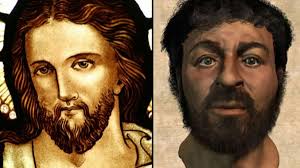
Starting with the Historical Jesus
Some people don’t believe there was a Jesus. Others believe he was merely one of the many revolutionaries of his time, fomenting rebellion against the Roman occupiers of Israel. Others believe there was an historical Jesus, but he certainly wasn’t God.
So, just to address these issues before moving on to the main topic of this blog, the existence of the historical Jesus is more certain than that of any person of his era, according to many scholars. Besides the gospels and Acts of the Apostles, which the vast majority of scholars – religious or not – believe are historical, there are non-biblical sources that attest to his existence.
As for his being just another revolutionary of his time, some authors have tried to demonstrate that idea but the books I’ve read on this subject failed miserably. Jesus’ message and actions were overwhelmingly religious; that is, efforts to bring God to his people.
More Complicated
The third claim, about Jesus being God, is more complicated and requires faith, but not blind faith. Scripture scholars – religious and non-religious – are not of one mind on this issue, but examining what Jesus said of himself, what his followers believed about him, and what the earliest Christian communities believed makes a strong case for Jesus’ divinity.
So where does that leave us?
In his little book, “Jesus and his Abba,” Leonardo Boff, a Brazilian theologian and philosopher – who has specialized in the study of Jesus’ history and has written over 25 books on the subject – believes that people searching for God in the Christian tradition should “start from the historical Jesus to arrive at the Christ of faith.”
Jesus, writes Boff, “was an Aramean, a member of the Semitic people, whose ancient origins are located in Mesopotamia, southeast of the present-day Turkey, northeast of Syria, and north of Iraq. (If you happen to have Lebanese or Syrian blood, like my friend, Gerald, you could say you have a special biological relationship with Jesus.)
Jesus was an inhabitant of the Near East, “a Semite with almost brown skin. He lived in a marginal province of the Roman Empire, Palestine and Galilee, under the Pax Romana of the Caesars. He was called by the Hebrew name, Jeshua.
In the creed that Catholics and some other Christians recite together at the Eucharist (or Mass), we say that Jesus is “consubstantial” with us, that Jesus shares our full humanity. So, Jesus “went through all the stages of the constitution of his humanity.” He had to find his place in society and determine how he would make a living.
Boff refers to Jesus’ occupation as “carpenter/craftsman,” and in his book, Jesus: An Historical Approximation, Spanish theologian and scripture scholar, Jose Antonio Pagola, speculates that Jesus probably was like a handyman, building and helping to build things. Pagola believes Jesus probably worked on the later stages of the construction of the city of Sepphoris, a dazzling town and showcase for Roman wealth which became “the capital of Galilee.” It was less than a two hours’ walk from Nazareth, Jesus’ hometown.
Professional and Commercial Ties?
“…We could imagine Jesus and Joseph establishing professional and commercial ties with Sepphoris, a Hellenized city of tens of thousands of inhabitants, among whom were Jews and Gentiles,” says the web site of the Saxum Visitors Center in Israel.” It was “a Greco-Roman style city, with its forum, center of trade and business, civil buildings, paved streets and sidewalks, maybe a theater….
“Some researchers suggest that Jesus’ openness to all peoples during his public ministry has to do with this connection to Sepphoris. We can imagine he might have had suppliers and clients there; he went to the market or even worked on some of the ongoing building projects. Thus, he would meet and make friends with everyone: Jews and Gentiles, locals and foreigners, rich and poor.”
In next week’s Skeptical Faith, which will be coming to you from Medellin, Colombia, we’ll quote more from Boff’s book, moving beyond Jesus’ life story to cover what Boff calls “Jesus’ Fundamental Project.” Stay tuned.





